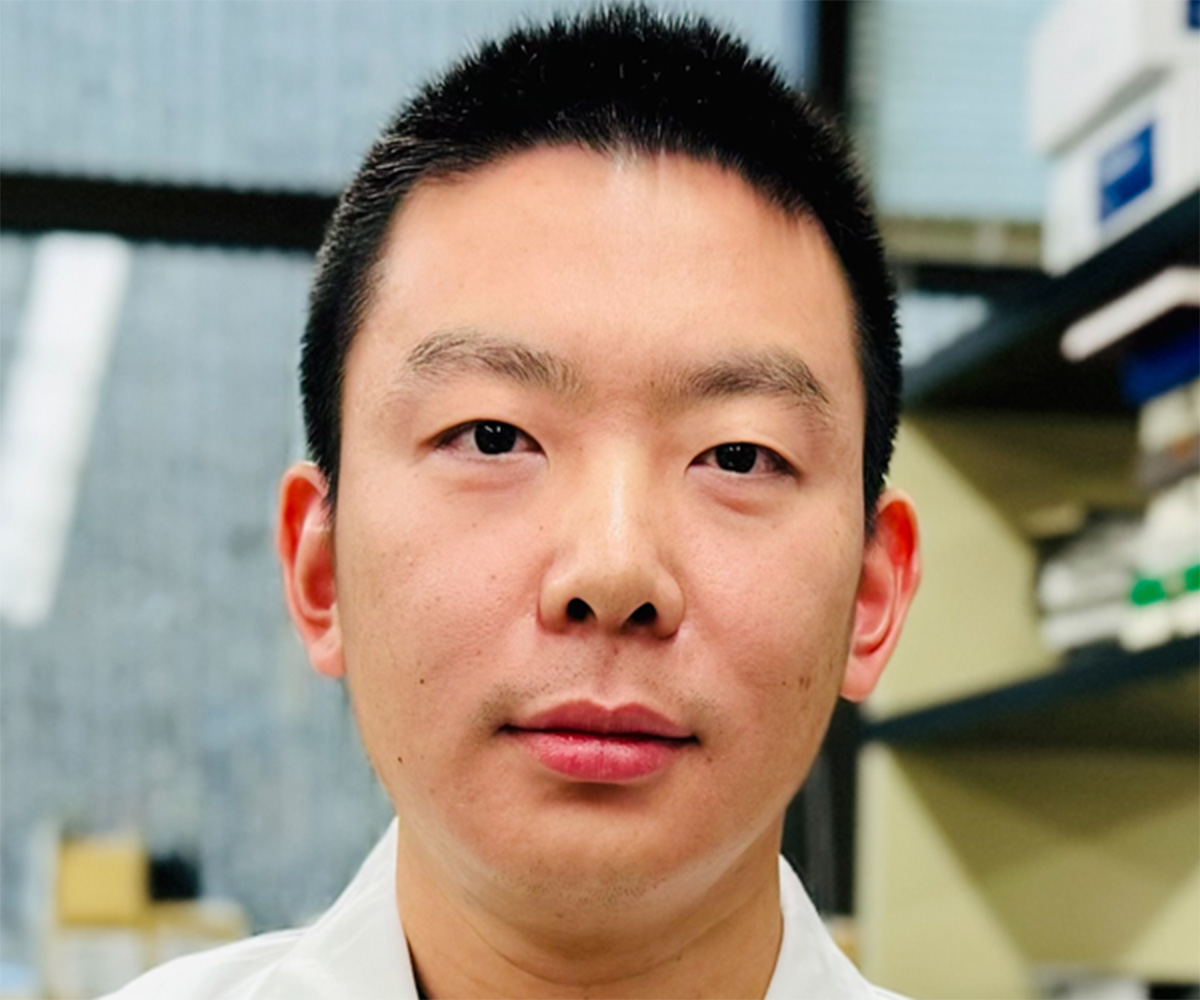

Researchers led by Ludwig Harvard investigators Andrew Lane and Qingyu Luo reported in a May publication in Nature that the cells of a subset of myeloid, and some lymphoid, leukemias rely on a molecular complex called PI3Kγ for survival. They also showed in preclinical studies that eganelisib—a PI3Kγ inhbitor—may prove effective in treating such cases alone or in combination with cytarabine, a drug often used to treat acute myeloid leukemia (AML). Using genome-wide CRISPR interference to identify genes that AML cells depend on for growth, Qingyu, Andrew and their colleagues discovered that the gene for PIK3R5, a component of the PI3Kγ complex, is essential to the survival of a subset of leukemia cells. Animal models of patient-derived leukemias predicted to be dependent on the complex survived longer with eganelisib treatment. Combined treatment with eganelisib and cytarabine extended survival more than cytarabine alone, regardless of the leukemia’s sensitivity to PI3Kγ inhibition, suggesting the two medicines have synergistic effects. The researchers found that PI3Kγ inhibition suppresses a metabolic process called oxidative phosphorylation that susceptible leukemia cells are especially dependent on for energy generation. Cells that survive cytarabine treatment—and might seed relapses—are similarly vulnerable to eganelisib. The findings offer a scientific rationale for testing the drug combination in AML patients whose cancers express biomarkers of susceptibility to the therapy.
Targetable leukaemia dependency on noncanonical PI3Kγ signalling
Nature, 2024 May 8